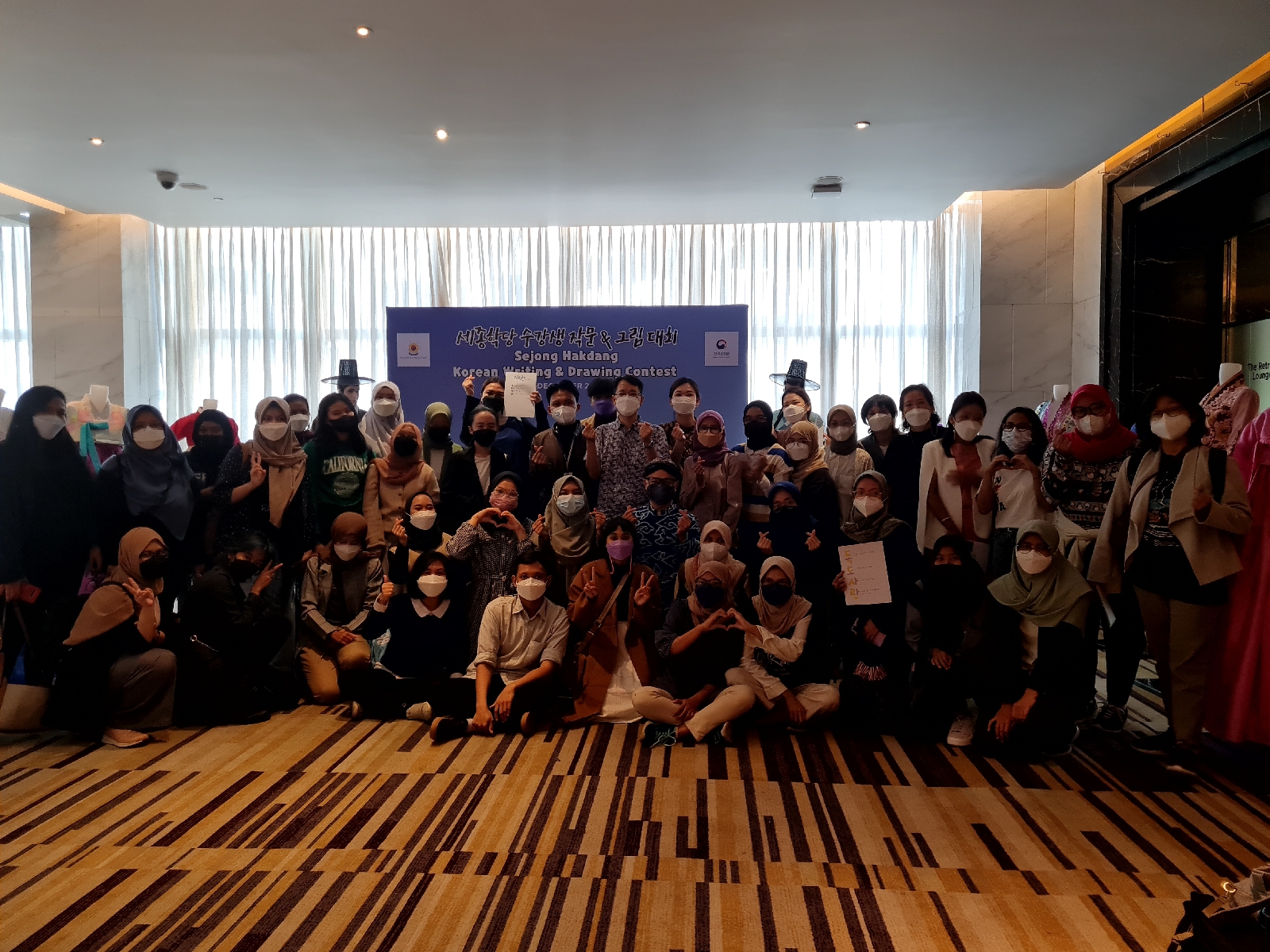King Sejong Institute Center in Indonesia held a Korean writing and drawing contest event

On Thursday 2 December 2021, the Embassy of the Republic of Korea together with the King Sejong Institute Center and KCCI held the "Sejong Hakdang Korean Writing & Drawing Contest" which was held at the Westin Hotel Jakarta! With two themes, namely "Writing Acrostic Poetry - Love Dokdo" and "Beautiful Korean Land". Before this event started, we were given an explanation about the history of Dokdo Island and all of us present knew that Dokdo Island belongs to South Korea, Dokdo is an area attached to South Korea historically, geographically, and by international law. Dokdo had been known as Usando or Gajido before, but in 1882, when the first residents settled in Ulleungdo, they started calling it Dokseom Island. Because when they saw the island, which is mostly composed of rocks, the residents of Ulleungdo took the word "Dok", equivalent to 'dol' in their local dialect which means rock, in the end the resid...
